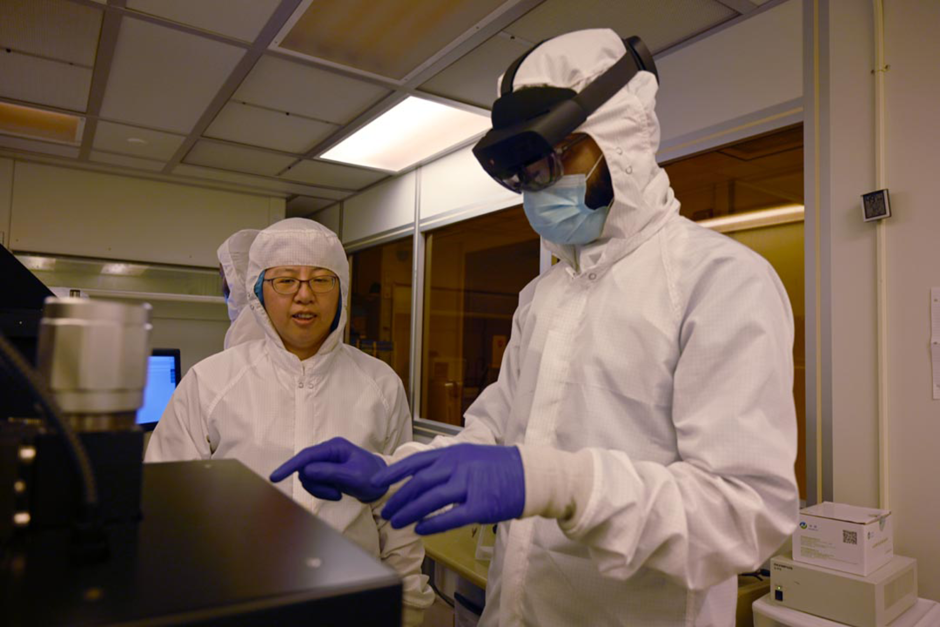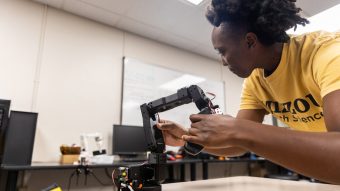By Mary Dillon

Jan. 13, 2024
A University of Missouri team led by Fang Wang, associate teaching professor of information technology, is now using extended reality (XR) and artificial intelligence (AI) tools to transform how students learn.
The National Science Foundation recently awarded Wang a nearly $400,000 grant for her project, “Enhancing hands-on cleanroom semiconductor fabrication education with AI-assisted extended reality.”
The initiative aims to transform how undergraduate students learn about semiconductor fabrication by introducing advanced XR and AI technologies into the classroom and lab environments.
“At the heart of this initiative is a need to address both practical and logistical challenges in semiconductor education,” said Wang, who is also director of the Collaborative Research Environments for Extended Reality (CREXR) Lab. “The semiconductor fabrication course is crucial to the curriculum, as it reinforces theoretical knowledge from the classroom, provides hands-on experience and prepares students for future careers. However, the challenge is traditional methods rely heavily on cleanroom access and costly equipment, limiting how many students can gain this essential experience.”
The project leverages XR technology to offer a scalable, immersive learning experience that allows students to practice semiconductor fabrication techniques in a virtual environment, then apply them in a real cleanroom environment. The integration of AI into the XR system provides real-time guidance and feedback, making the training both interactive and highly personalized.
“Our XR-based microfabrication training modules introduce advanced features and innovations,” Wang said. “They’re portable, cost-effective and hands-free, with in-situ assistance while on task, enhanced with AI to create a more supportive learning environment.”
The project is a collaboration between the College of Engineering and College of Education & Human Development faculty at Mizzou, designed to make semiconductor training more accessible, efficient and engaging.
“Having such interdisciplinary talent and resources readily available on campus is invaluable,” Wang said. “Expertise in semiconductor research and education with access to cleanroom facilities, VR/AR technical skills and facilities, and educational expertise are all essential to making this project possible.”
Read more from the College of Engineering


